Religion in Greece is tied to every aspect of Greek culture. Read on to find out more about what it means to be a Greek Orthodox Christian, and some of the Greek customs that are related to religion.
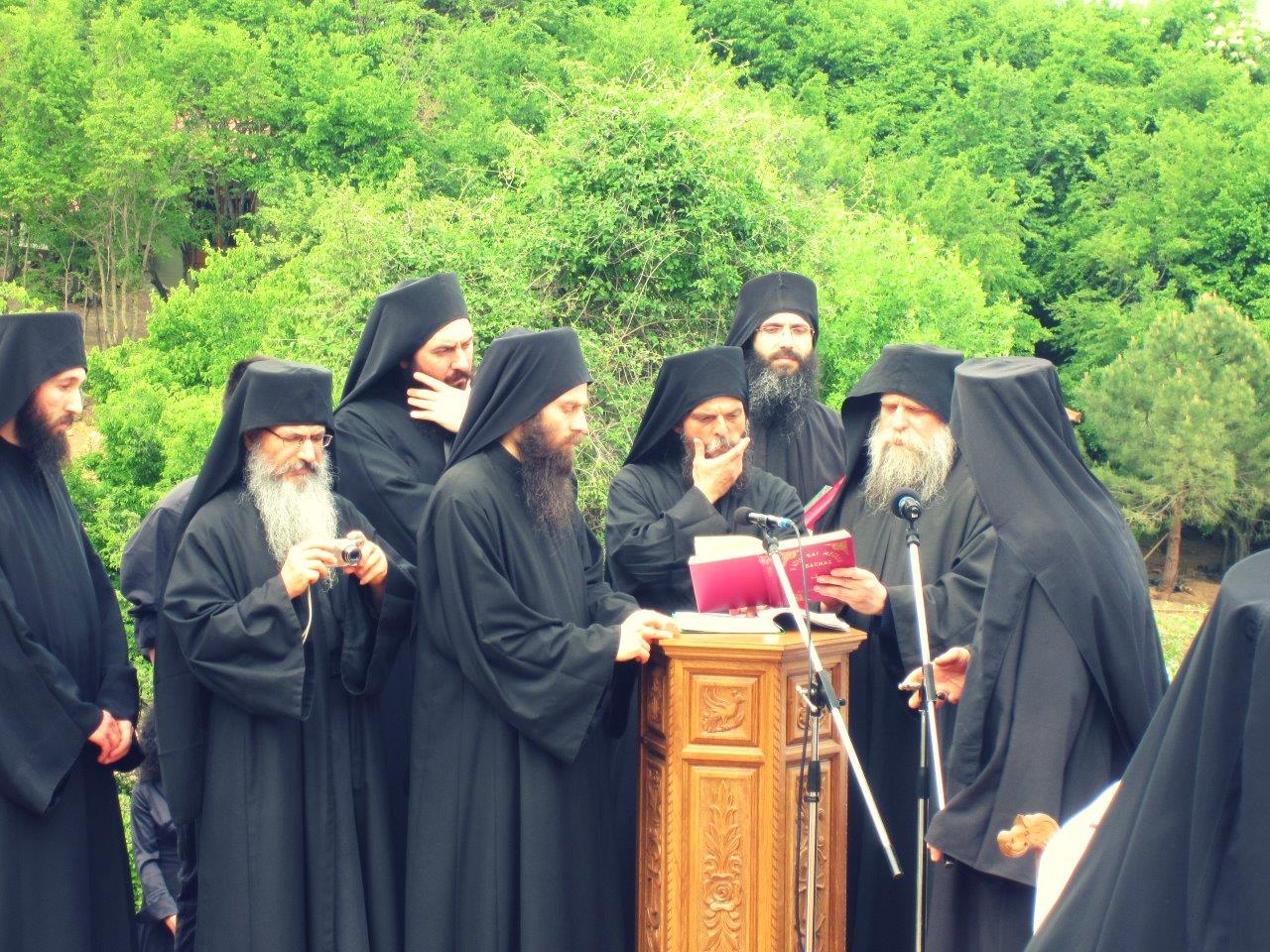
The main religion in Greece is Greek Orthodoxy
Religion in Greece is an important part of Greek culture. The percentage of self-identified religious people in Greece is among the highest in Europe.
The most widely practiced religion throughout Greece, and the one that you will read about in this article, is Eastern Orthodoxy, known also as Greek Orthodoxy. There are a few religious minorities in Greece, such as Muslims, but they make up a very small percentage of the population.
Greek Orthodoxy is a branch of Christianity. The Greek Orthodox Church is one of the oldest Christian traditions, tracing its roots to the early Church established by the Apostle Paul.
There are various differences between the Greek Orthodox church and the Roman Catholic and Protestant traditions. For example, there is no Pope in the Greek Orthodox church; also, churches are decorated with frescoes and icons, rather than statues.
To understand the cultural significance of religion in Greece, it’s worth pointing out that, until 2001, reference to the Greek Orthodox religion on national Greek ID cards was mandatory! Nowadays, there is no mention of religion on IDs issued in Greece.

There are thousands of churches around Greece
If you visit Greece, you’ll definitely be surprised by the number of cathedrals, churches and chapels. Wherever you are, you will usually be able to see at least one religious establishment if you look around!
Given Greece’s long and varied history, some of those churches are over 700 – 800 years old, and were built at the times of the Byzantine Empire. These were commonly erected on the sites of Ancient Greek temples devoted to the Greek Gods of Mt Olympus.
The interior of Greek Orthodox churches is decorated with icons and, sometimes, frescoes. There are no statues, and the altar is typically behind the iconostasis. The lighting is usually dim and mystical, with candles and lamps.
This is the very unusual church of Agia Fotini near Tripoli in the Peloponnese, that was built in the 1970s. It uniquely combines several architectural elements in one church!

Apart from the various churches and chapels in Greece, you will also notice several tiny churches on the roadside, all around the country. Unfortunately, many of those little shrines were built in the memory of someone who died at a car accident.
Sometimes, however, they were built by those who survived an accident, to honor the saint who protected them.
The Meteora monasteries are not the only monasteries in Greece
Apart from churches and chapels, Greece has hundreds of monasteries and nunneries. The Meteora monasteries, as well as the peninsula of Agion Oros / Athos, are among the most famous monasteries in Greece.
However, visitors often don’t realize that there are monasteries everywhere in Greece. Not all of them are functioning, but almost anywhere you go, there will be a monastery in close proximity.
Apart from the Meteora Monasteries, some of my favourite monasteries in Greece are the following:
- Panachrantou Monastery in Andros
- Monastery of the Virgin Mary Chozoviotissa in Amorgos
- St. John Chrysostomos’s Monastery in Naxos
- Holy Monastery of Saint John the Theologian in Patmos
- Holy Monastery of Panormitis in Symi
- The abandoned Askitario monastery in Corfu
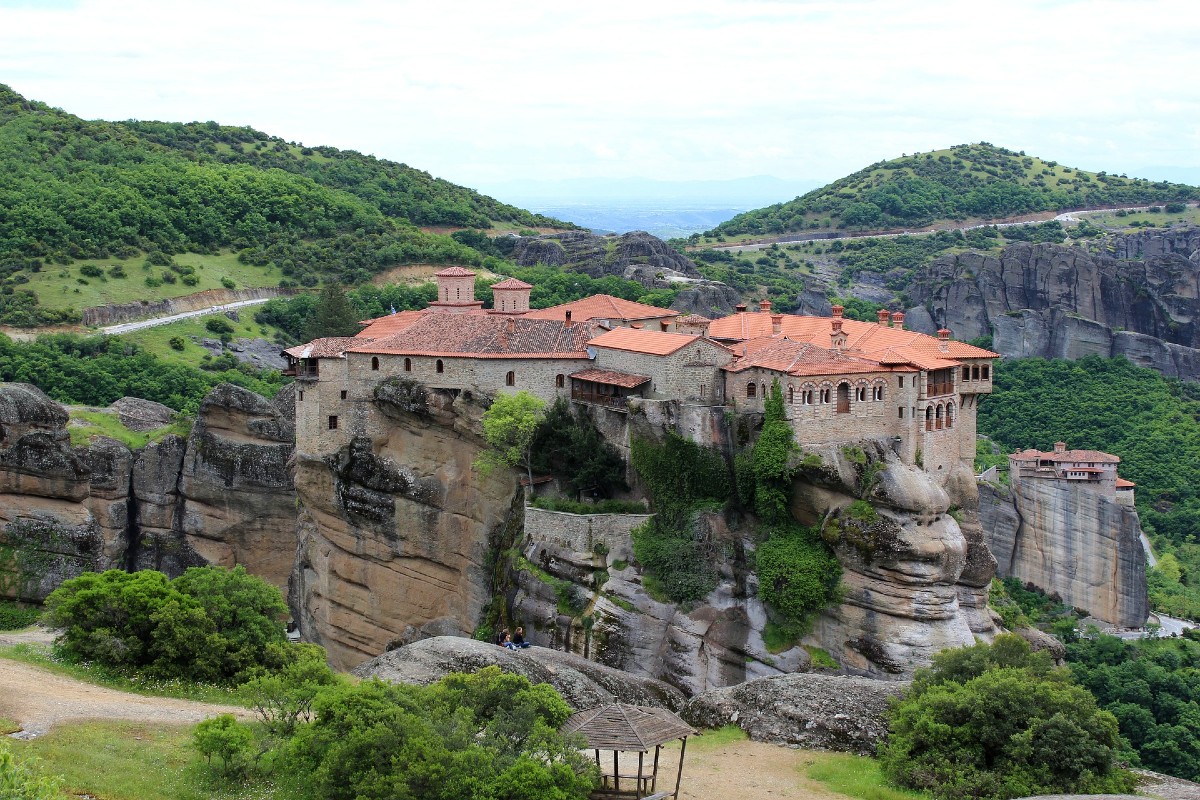
You can visit most of the Greek monasteries and nunneries at specified times. You will need to be modestly dressed, which means long skirts for women, long trousers for men, and have your shoulders covered. Many monasteries have wrap-on skirts that you can borrow, but you can always have your own.
Many Greek names are connected to religion
In Greece, children are baptized Christian Orthodox in church, when they are a few months old. They are traditionally named after their grandparents, who, in most cases, were named after a Christian Orthodox saint.
During the ceremony, the baby is immersed in a large tub of water, while the priest recites various prayers. In most cases, this ceremony is not all that pleasant for the baby – there is normally a lot of crying going on!

Quite often, parents call their children by a nickname – so for example, Konstantinos can be called Kostas, and Panagiota can be shortened to Penny. My parents shortened my own name, Vassiliki, to Vanessa. Apparently, I owe this to Vanessa Redgrave, who was popular at the time I was born.
These days, many couples choose to give their children a name they like rather than name them after a grandparent. Nevertheless, church baptisms still take place for most babies, and it’s an important cultural event for the family and friends.
Greeks celebrate their name day
Most Greek people have a name day, which is the day when the Orthodox Saint who we were named after celebrates. For older generations, a name day used to be much more important than a birthday.

Some of the most important Greek name days are the following:
- Giannis – St. John (January 7)
- Giorgos – St. George (April 23, or the first Monday after Easter)
- Kostas and Eleni – St. Constantine and St. Helen (21 May)
- Maria (the Assumption of Mary on 15 August and the Presentation of the Blessed Virgin Mary on 21 November)
- Dimitris – St. Dimitrios (26 October).
Traditionally, people received friends and relatives at home on their name day. No invitation was needed – it was just assumed that people would drop by. This is becoming less and less common these days – but you still expect people who know you to wish you a “happy name day”.
Read more here: Name Days in Greece
How to attend a mass in Greek church
There are various church masses throughout the year. Although going to church is not very common in the bigger cities in Greece, it is quite important in smaller towns, rural areas and the islands.

In many areas, the church is not only a place to worship God, but also a place to meet like-minded people and socialize. In fact, many cultural activities, like choirs or excursions, are organized by the local churches.
Masses are held in Greek. There is usually some chanting, but the organ or other instruments are not allowed in the Orthodox church.
The Greek panigiria – Honoring the Saints
A panigiri is a local feast in celebration of a saint. Since there are several saints in Greece, there is an abundance of panigiria throughout the year, everywhere in the country.
Apart from the religious element, there is live music, and lots of food and drink. If you are on a Greek island, make sure you ask around. If you are lucky, you will witness one of the best examples of religion meeting Greek culture.
Some of the best panigiria in Greece happen on Ikaria island – but you can experience traditional panigiria in all islands and rural areas of Greece. I loved the panigiria in Kasos island.
If you are planning to go to a panigiri, have a look at my guide on Greek celebrations. Also, these useful words in Greek may come in handy.
Fasting is linked to the religion in Greece
For most religions, fasting is a custom related to cleansing, and there are several fasting periods throughout a year.
The Greek Orthodox church follows a rather strict fasting regime. It consists of a specific diet on about 180 days in total throughout the year. The longest streak begins on Clean Monday and continues throughout Lent.
The fasting calls for an almost vegan diet, where confusingly seafood (but not fish) is also allowed. The fasting regime also includes abstinence from “anything pleasurable”, which makes one wonder how religious Greeks make babies.
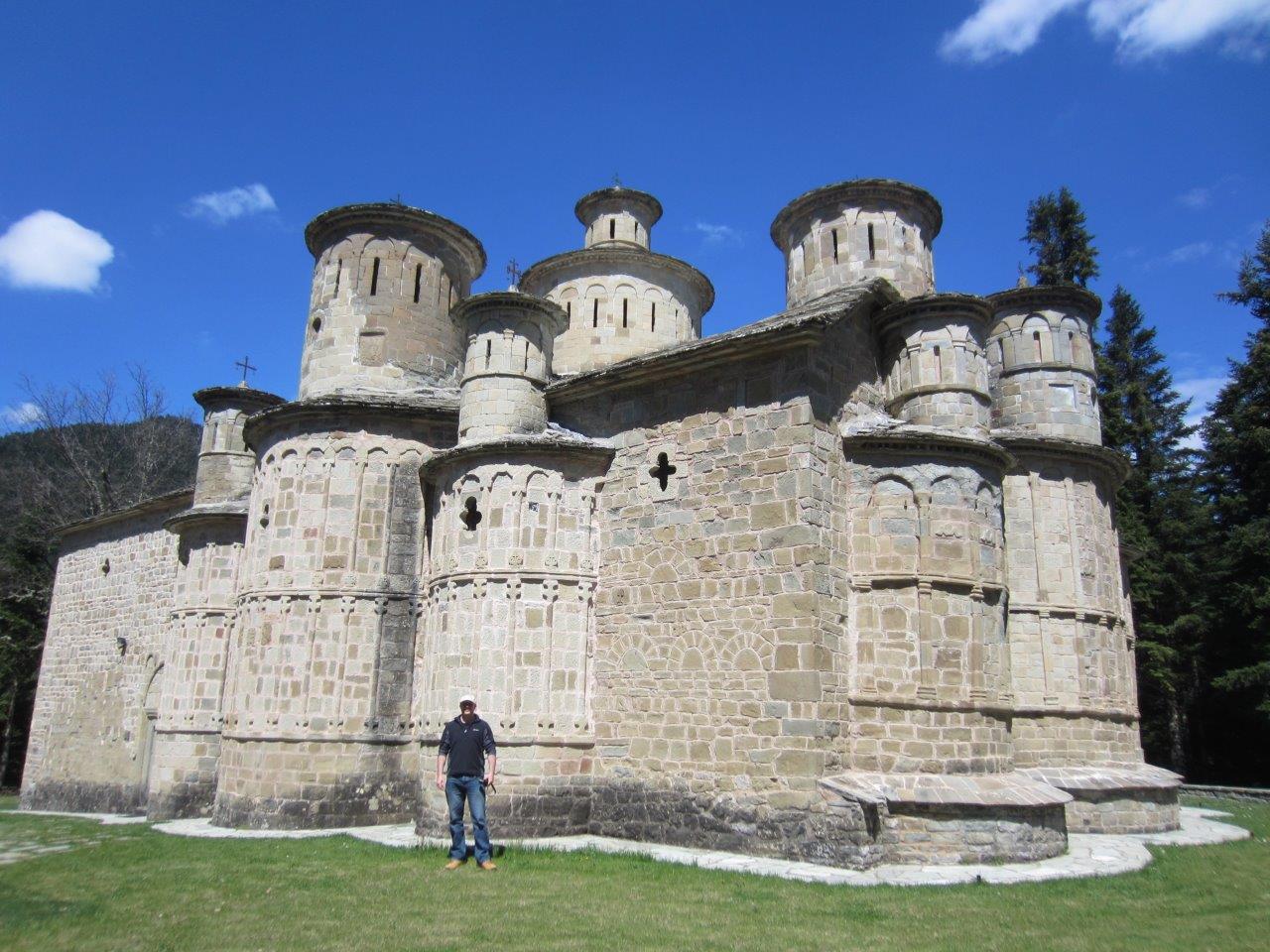
The longest periods of fasting are the weeks before Easter, before Christmas and before the Dormition of Virgin Mary on 15th August. Most Wednesdays and Fridays throughout the year are also fasting days.
A few foods like olive oil and wine have their own special place in the fasting regime, so they are not allowed on all fasting days.
Confused? You are not alone. However, there are several people in Greece who follow a strict fast throughout the whole year!
Greek Easter is the most important religious holiday in Greece
In most countries where Christianity is a major religion, Christmas is the biggest religious holiday. In Greece, however, Easter is traditionally more important than Christmas.
On the week before Easter, fasting becomes extra strict, and there are masses in churches all around the country.
One of the highlights of those ceremonies is the Perifora tou Epitaphiou, on the evening of Good Friday. This consists of a flower-adorned cubicle, the Epitaphios, representing the grave of Jesus Christ. The Epitaphios is carried around the church and the neighbourhood, and people follow in a procession.
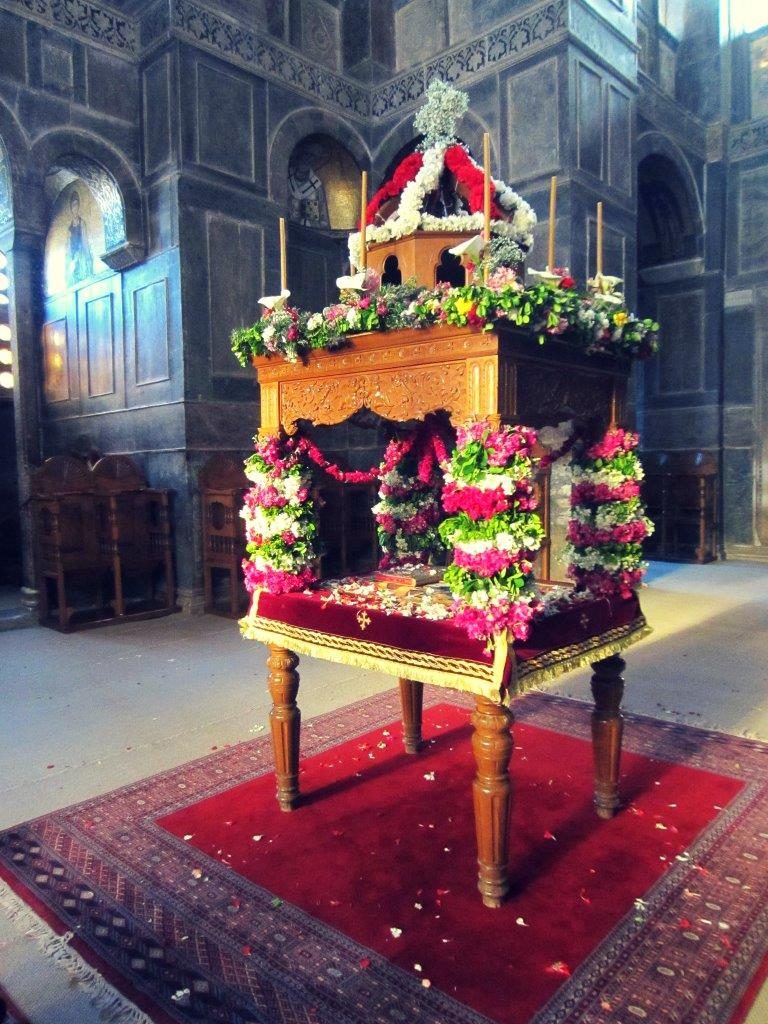
Unlike Christmas, Greek Easter is not really commercialized. There is no tree to decorate, no stocking fillers, no socks over the fireplace.
The only things bought for the Easter ceremony are candles, to be lit up in the church on Holy Saturday. These are traditionally bought by a person’s godfather or godmother.
Greek Easter Food
Greek Easter traditions include LOTS of food.
- Tiropita, spanakopita, and various types of salads
- Local meat delicacies with weird names, such as kokoretsi and gardoumpa
- A tasty, hearty meat soup called magiritsa, made out of animal parts that are not even allowed in some countries
- Red hard-boiled eggs, which are meant to be crushed into each other
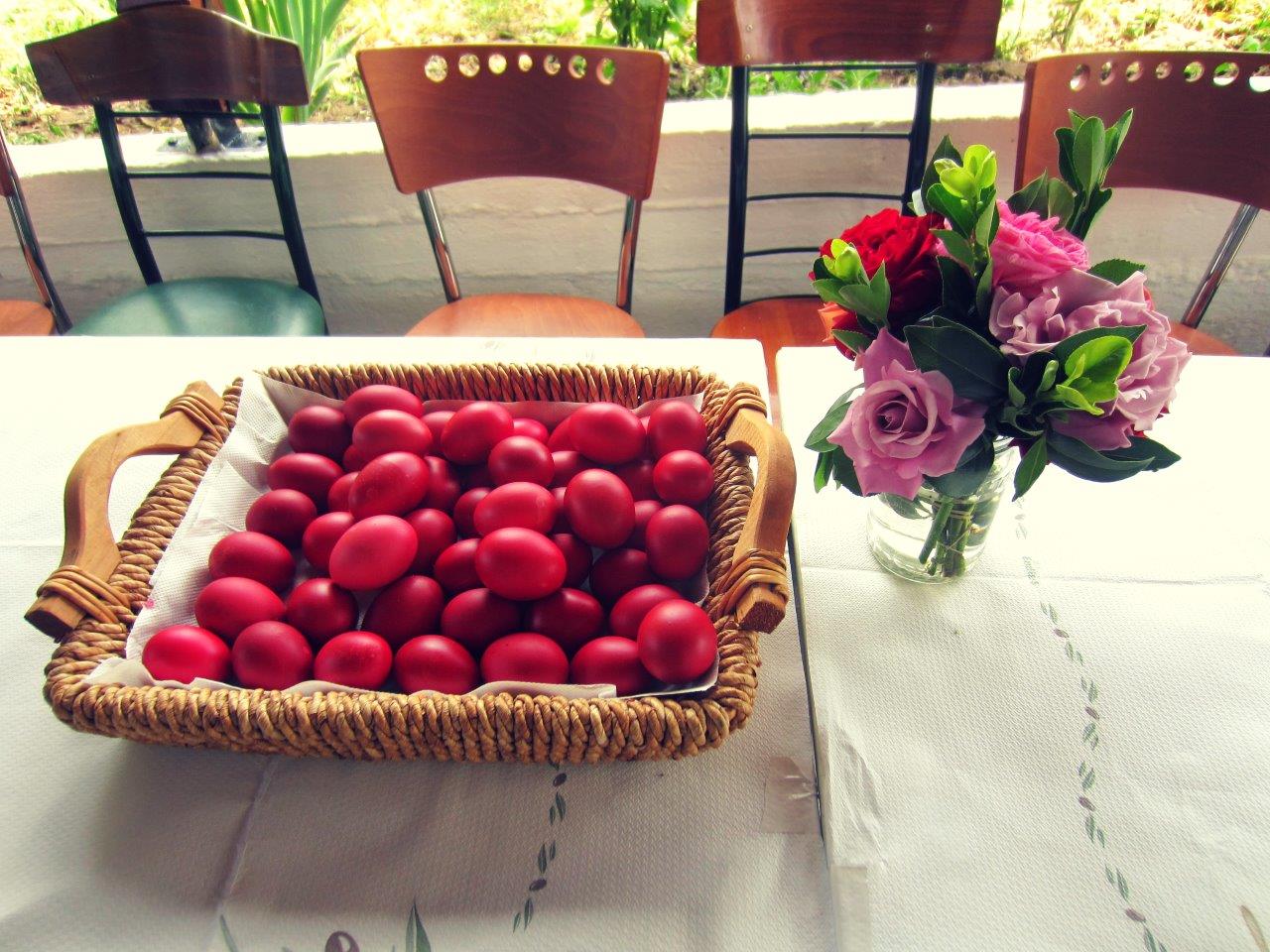
The highlight of Easter Sunday is lamb on the spit. For most Greeks, this means the WHOLE lamb on the spit – one for each family!

Easter is an important day and a huge feast, and it’s celebrated in traditional style all around Greece. In some places it is celebrated for several days. Schools remain closed throughout the Good Week and the week after Easter.
Here is some more information about what to expect if you are visiting during Greek Easter. As for Greek food, take a look here: 50 best Greek dishes to try!
The Orthodox church in Greece accepts the evil eye curse
The evil eye is a common idea around the Mediterranean, and not only. It is a curse, believed to be given to a person by someone looking at them.
Although the evil eye tradition is arguably of a pagan nature, the Orthodox church accepts it nevertheless.
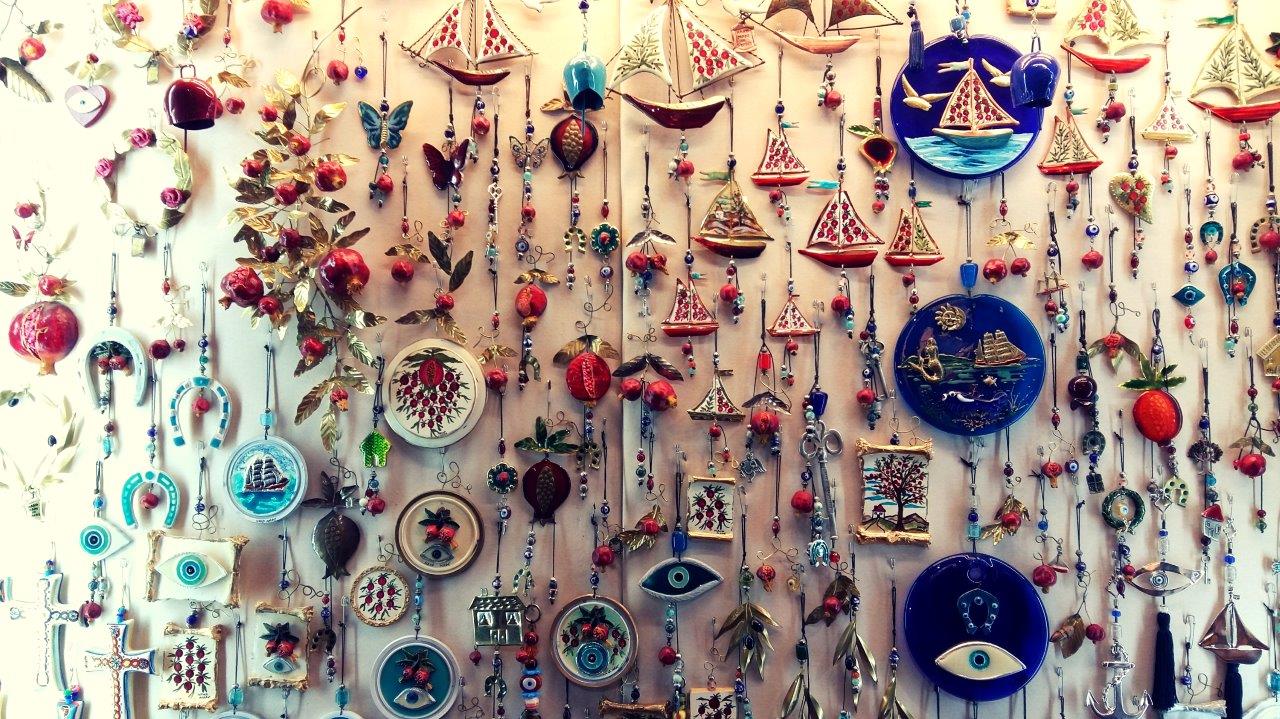
If you walk around any of the touristy areas in Greece, you are likely to come across several pieces of jewellery or decoration that will keep the evil eye away.
Here is some more information on the concept of the evil eye. The resemblance to the Eye of Horus might not be entirely a coincidence!
FAQs about Religion in Greece
Here are some questions that people often ask about religion in Greece:
What is the main religion in Greece?
The main religion in Greece is called Christian Orthodoxy, or Greek Orthodoxy. Over here, we just call it Christian Orthodoxy.
How many religions are there in Greece?
Apart from Christian Orthodoxy, there are small percentages of people who follow other religions in Greece. Examples are Catholics, Protestants, Muslims, and people who follow the Greek National Religion, which is related to the 12 Olympian Gods.
Is Greece an Islamic country?
Greece is not an Islamic country. There are, however, Muslim people in Greece. The Muslim minority is about 1% of the population.
What are the Greek religious beliefs?
The main religion in Greece is Christian Orthodoxy. With that said, not everyone in Greece follows these principles. Some people identify as agnostics or atheists.
Is Christianity a Greek religion?
This question cannot be answered in a couple of lines. We’d first need to define what it means to be ‘Greek’, which is a whole different chapter.
More blog posts about Greece
You might also be interested in these other articles about Greece:
- Things you should know before visiting Greece
- Greek customs and habits
- How to experience Greece from A to Z

Hi! I’m Vanessa from Athens and I love travelling around Greece and the Greek islands. Follow me on my social media:
- Facebook page and very active Facebook group
- Amazon
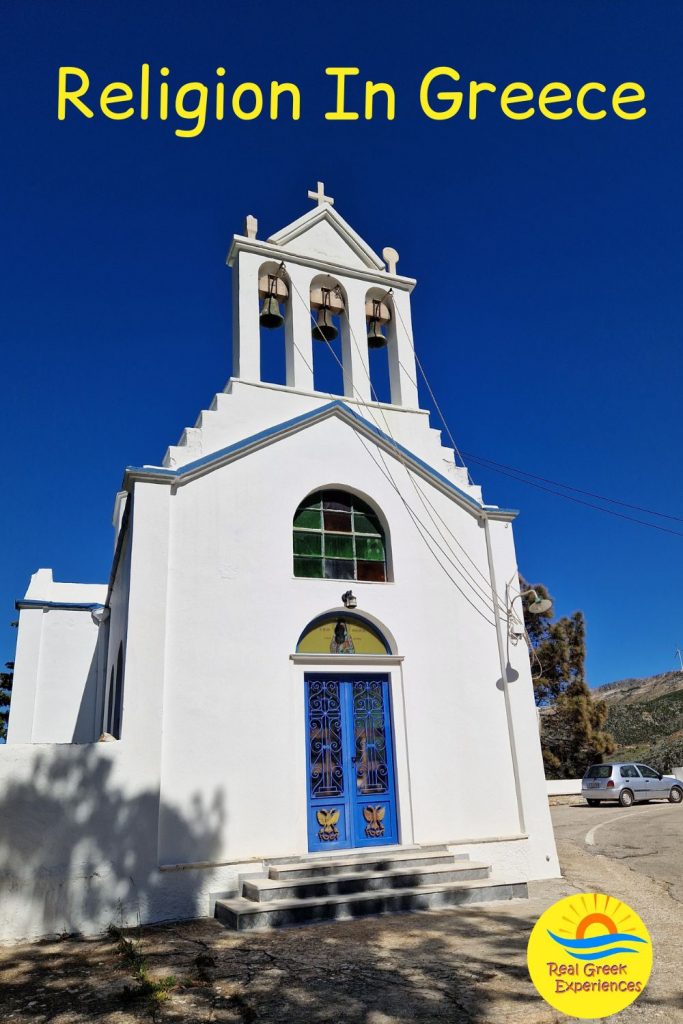
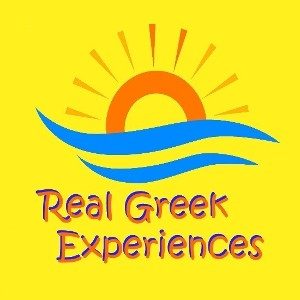
For the fasting the week before Greek Easter, what food is allowed to eat and not eat? Is it only meat and fish or other foods too? What else must be acidified during this fasting period?
You don’t say nothing about other religious groups. No mention of the Hellenic ethnic religion, no mention of Islam, no mention of Hindus, no mention of Buddhists. It’s a clear article on Eastern Orthodoxy. No spherical, no relation to reality. and the real Hellenic world. There is also a large part of the population where they are atheists or angnosists.
I won’t disagree that many people are atheists or agnostics, but even they celebrate many of our religious holidays. I know plenty of atheists that are happy to go to church for Easter… whether we like it or not, religion is tied to the culture in Greece. As for the other religious groups you are mentioning, I don’t think a visitor to Greece would notice any of them. For us living here, sure, we may know a few people who follow these religions, but they are definitely not major.
why is Easter in your post? this is about religion not hollodays!
Thanks! I am not sure I understand your question. For religious Greeks, Easter is the most important religious celebration of the year. And I am not talking about the holiday aspect, but the religious and cultural one. You might want to have a look at this article?
Hello! Nice article Vanessa, it’s really respectable that you wanted to write about our religion as an undivided aspect of our culture. I just wanted to mention that Greek Orthodoxy does not accept the “evil eye”. As you said it is of pagan nature, and it doesn’t fit into Orthodox Christianity. I know that the “evil eye” is very popular in our country, but I assure you, and you can actually check on it, the Greek Orthodox Church does not accept or approve it. The symbol of Cross is more than enough to protect a Christian, there is no use for the “eye”. Thank you for reading till the end!
Thank you for your comment Evi! I have actually discussed this sensitive matter with religious people and my understanding is that the Greek Orthodox church accepts the vaskania. And while the church does not accept any symbols other than the cross, I think that many religious people do. Please check this other article I’ve written on the evil eye which goes a little deeper and let me know what you think!
can you tell me about the little medallions sometimes hung over a statue of Mary in some of the churches? They might have a leg or an arm, or an infant embossed in them. What are they called and what is their usage? And are they left forever? Thanks!! Great description.
Hi and thanks for your question! These medallions are usually called τάμα (tama – singular) / τάματα (tamata – plural), though the proper word is ανάθημα (anathima – singular). As far as I know they are left forever, I have been to churches on the islands where there are literally hundreds of them. People leave them in the church either when they are praying to a saint for something to happen, or as a token of appreciation when they had a wish granted. I’ve written a few more things here, have a look 🙂 Btw, there was a similar practice in Ancient Greece, and in many other religions…